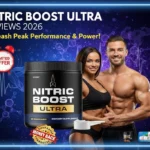Introduction
You Know About This Supplements That Actually Work Walk into any health store or scroll through wellness influencers’ posts, and you’ll be hit with a flood of supplements promising everything from fat loss to mental clarity. But do any of them actually work? Or are you just paying for expensive urine?
Fortunately, science has done some of the heavy lifting. While not all supplements live up to the hype, a handful are backed by solid research. Below, we break down the supplements with real evidence behind them—what they do, who they’re for, and what to watch out for.
1. Creatine Monohydrate: For Strength and Muscle Gain
What it does: Creatine helps your muscles produce more energy during high-intensity exercise. It’s one of the most studied supplements in sports nutrition.
Backed by: Over 1,000 peer-reviewed studies.
Benefits:
- Increases muscle mass and strength
- Improves high-intensity exercise performance
- May enhance brain function and reduce mental fatigue
How to take it:
Start with a loading phase (20g/day for 5-7 days) or go straight to a maintenance dose (3–5g/day). Safe for long-term use in healthy individuals.
Caution:
Stay hydrated. Some users experience mild bloating early on.
2. Omega-3 Fatty Acids (Fish Oil): For Heart and Brain Health
What it does: Omega-3s are essential fats, especially EPA and DHA, found in fatty fish. They play a critical role in brain function and cardiovascular health.
Backed by: Dozens of large-scale trials and meta-analyses.
Benefits:
- Reduces triglyceride levels
- Supports heart and brain health
- May help with depression and anxiety symptoms
How to take it:
Aim for 1,000 mg/day of combined EPA and DHA. Look for molecularly distilled fish oil to avoid contaminants like mercury.
Caution:
Can thin blood—consult your doctor if you’re on blood thinners.

3. Magnesium: The Underrated Mineral
What it does: Magnesium supports hundreds of biochemical reactions in the body, including muscle and nerve function, sleep, and blood sugar regulation.
Backed by: Numerous randomized trials and nutritional studies.
Benefits:
- Promotes relaxation and better sleep
- Helps regulate blood pressure
- May reduce migraine frequency
How to take it:
Most effective forms: Magnesium glycinate (for relaxation) and citrate (for digestion). Typical dose: 200–400 mg daily.
Caution:
High doses can cause diarrhea, especially with magnesium oxide.
4. Vitamin D: Especially If You’re Indoors A Lot
What it does: Vitamin D is crucial for bone health, immune function, and mood regulation. Most people are deficient, especially in winter or northern latitudes.
Backed by: Strong observational and interventional studies.
Benefits:
- Supports immune health
- Improves bone density
- Linked to better mood and lower risk of depression
How to take it:
2,000 IU/day is a good general recommendation, but testing your levels is ideal. Take it with fat for better absorption.
Caution:
Don’t megadose without supervision. Too much can lead to calcium buildup in the blood.
5. Protein Powder: Convenience, Not Magic
What it does: Helps meet daily protein needs, which supports muscle repair, satiety, and metabolism.
Backed by: Sports nutrition research and clinical dietetics.
Benefits:
- Supports muscle recovery and growth
- Helps with weight management
- Convenient for busy lifestyles
How to take it:
Whey isolate is fast-digesting and great post-workout. Plant-based options like pea or rice protein work well too. Aim for 20–30g per serving.
Caution:
Not a replacement for whole foods. Some powders are loaded with sugar or fillers—check the label.
Honorable Mentions (Depending on Your Needs)
- Ashwagandha – May help with stress and cortisol levels
- Probiotics – Support gut health, especially after antibiotics
- Caffeine – Enhances focus and exercise performance
- Melatonin – Can reset circadian rhythm if used properly
Supplements to Be Skeptical About
- Testosterone boosters: Often under-dosed and ineffective
- “Fat burners”: Usually just stimulants with marketing hype
- Multivitamins: May not offer much benefit if you eat a balanced diet
Final Thoughts
Supplements That Actually Work aren’t magic pills—but when used wisely and backed by science, they can enhance your health, performance, and well-being. Always consider your individual needs, talk to a healthcare provider if you’re unsure, and remember: supplements are just that—supplements to a healthy lifestyle, not substitutes for one.












1 thought on “Supplements That Actually Work (Backed by Science)”